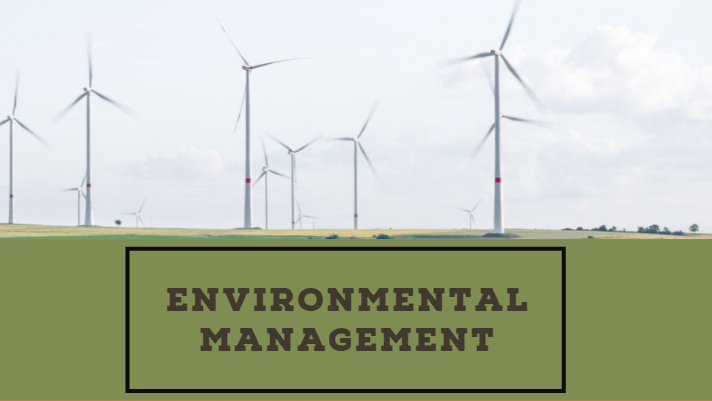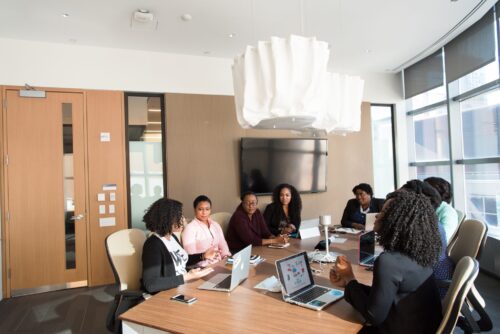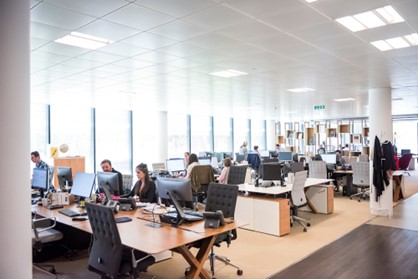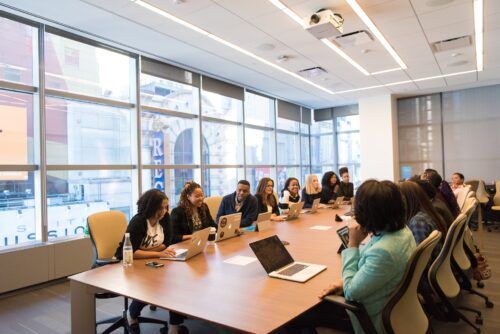As organizations strive to become more environmentally conscious, implementing an effective Environment Management System (EMS) has become a crucial step towards achieving workplace sustainability. An EMS is a framework that helps organizations identify, manage, monitor, and reduce their environmental impact. By integrating environmental considerations into their daily operations, businesses can not only minimize their carbon footprint but also benefit from cost savings and improved reputation.
To understand the significance of an EMS, it is important to first grasp its key components. The EMS consists of a set of policies, procedures, and practices that outline how an organization manages its environmental responsibilities. It involves identifying and assessing environmental aspects and impacts, setting objectives and targets, implementing operational controls, and monitoring performance. By adopting an EMS, organizations can proactively address environmental risks, comply with relevant regulations, and continuously improve their environmental performance.
Benefits of implementing an Environment Management System
Implementing an Environment Management System offers numerous benefits for organizations committed to workplace sustainability. Firstly, it helps to reduce environmental impact by identifying and addressing potential risks and opportunities. By systematically evaluating environmental aspects and impacts, businesses can implement measures to minimize pollution, conserve resources, and reduce waste generation. This not only contributes to a healthier planet but also leads to cost savings through reduced energy consumption, improved efficiency, and waste reduction.
Secondly, an EMS enhances regulatory compliance by ensuring that organizations meet the necessary environmental requirements. By actively monitoring and managing their environmental performance, businesses can demonstrate their commitment to legal and regulatory obligations. This not only helps to maintain a positive reputation but also mitigates the risk of penalties, fines, and legal consequences.
Lastly, implementing an EMS improves stakeholder relations and enhances brand reputation. In today’s socially conscious world, customers, investors, and employees are increasingly valuing organizations that prioritize environmental sustainability. By effectively managing their environmental impact, businesses can differentiate themselves from competitors, attract environmentally conscious customers, and build trust with stakeholders.
Step 1: Planning your Environment Management System
The first step in implementing an effective Environment Management System is to carefully plan the entire process. This involves understanding the organization’s context, identifying relevant stakeholders, and defining the scope of the EMS. By conducting a thorough assessment of the organization’s environmental risks and opportunities, businesses can establish a solid foundation for their EMS.
An important aspect of the planning phase is conducting an environmental aspect and impact assessment. This involves identifying all the activities, products, and services that have an impact on the environment. By evaluating the significance of these aspects and their potential impacts, organizations can prioritize their efforts and allocate resources accordingly. Furthermore, this assessment helps in setting realistic objectives and targets for the EMS.
Once the aspects and impacts have been identified, it is essential to engage stakeholders in the planning process. This includes employees, management, customers, suppliers, and regulatory bodies. By involving relevant stakeholders, organizations can gain valuable insights, ensure buy-in, and foster a culture of sustainability. Additionally, it is important to define the scope of the EMS, specifying the boundaries and limitations of its application within the organization.
Step 2: Setting objectives and targets
After completing the planning phase, the next step is to establish clear objectives and targets for the Environment Management System. Objectives are the overarching goals that an organization aims to achieve, whereas targets are specific, measurable, achievable, relevant, and time-bound actions that contribute to the objectives.
When setting objectives and targets, it is important to consider the organization’s environmental aspect and impact assessment. This helps in identifying the areas where improvements are needed the most. By aligning objectives and targets with the organization’s strategic goals, businesses can ensure that the EMS supports their overall mission and vision.
Furthermore, objectives and targets should be realistic and attainable. They should consider the organization’s available resources, capabilities, and timelines. By setting achievable targets, organizations can maintain motivation and track progress effectively. Regular review and revision of objectives and targets are also essential to ensure their ongoing relevance and alignment with changing circumstances.
Step 3: Developing an implementation plan
To successfully implement an Environment Management System, organizations need to develop a comprehensive implementation plan. This plan outlines the specific actions, responsibilities, and timelines required to achieve the objectives and targets set in the previous step. It provides a roadmap for the entire implementation process, ensuring that all necessary steps are taken in a structured and efficient manner.
The implementation plan should include a detailed description of the activities to be undertaken, along with the resources required to execute them. It should also clearly define the roles and responsibilities of individuals or teams involved in the implementation process. By assigning accountability, organizations can ensure that everyone understands their role and actively contributes to the success of the EMS.
Moreover, the implementation plan should include a timeline that outlines the sequence of activities and their respective deadlines. This helps in tracking progress and ensures that the implementation stays on schedule. Regular monitoring and reporting are essential to identify any deviations from the plan and take corrective actions if necessary.
Step 4: Implementing the Environment Management System
The fourth step in implementing an effective Environment Management System is the actual execution of the plan developed in the previous step. This involves putting the policies, procedures, and practices into action to achieve the objectives and targets set for the EMS.
During the implementation phase, organizations need to communicate the EMS to all relevant stakeholders. This includes providing training and awareness programs to employees, suppliers, and contractors. By ensuring that everyone understands their roles and responsibilities, organizations can foster a culture of sustainability and create a sense of ownership towards the EMS.
Furthermore, organizations should establish operational controls to manage their environmental aspects and impacts effectively. This includes implementing procedures for waste management, energy conservation, pollution prevention, and resource optimization. By regularly monitoring and measuring performance, businesses can identify areas for improvement and take corrective actions promptly.
It is also important to establish a system for documenting and maintaining records related to the EMS. This ensures that all activities and decisions are properly documented and can be audited if required. By maintaining accurate records, organizations can demonstrate their compliance with regulatory requirements and track their progress towards achieving the objectives and targets.
Step 5: Monitoring and measuring progress
Monitoring and measuring progress is a crucial step in ensuring the effectiveness of the implemented Environment Management System. This involves collecting data, analyzing performance, and comparing it against the established objectives and targets. By regularly monitoring key performance indicators (KPIs), organizations can identify trends, detect deviations, and take proactive measures to address any issues.
To effectively monitor and measure progress, organizations need to establish a system for data collection and analysis. This can be done through regular inspections, audits, surveys, and the use of appropriate monitoring equipment. By collecting accurate and reliable data, organizations can make informed decisions and track their environmental performance over time.
In addition to monitoring performance, it is important to communicate the results internally and externally. By sharing progress reports with employees, management, and other stakeholders, organizations can demonstrate their commitment to workplace sustainability. This also helps in identifying areas for improvement, soliciting feedback, and celebrating achievements.
Step 6: Reviewing and improving the Environment Management System
Continuous improvement is at the core of an effective Environment Management System. The final step in the implementation process is to review the EMS periodically, identify areas for improvement, and take corrective actions. This ensures that the EMS remains relevant, effective, and aligned with the changing needs and circumstances of the organization.
Regular reviews can be conducted through internal audits, management reviews, and employee feedback mechanisms. By involving all relevant stakeholders in the review process, organizations can gather diverse perspectives and identify opportunities for enhancement. It is important to consider both the strengths and weaknesses of the EMS and take appropriate actions to capitalize on the former and address the latter.
Based on the findings of the review, organizations should update their objectives and targets, as well as revise their implementation plan if necessary. By incorporating lessons learned and best practices, businesses can continuously improve their environmental performance and ensure the long-term sustainability of their operations.
Challenges and solutions in implementing an Environment Management System
Implementing an Environment Management System can present certain challenges for organizations. These challenges can range from resistance to change, lack of awareness or understanding, resource constraints, and difficulty in measuring and monitoring performance. However, with careful planning and proactive measures, these challenges can be overcome.
One common challenge is the resistance to change from employees and other stakeholders. To address this, organizations should focus on creating awareness and building a culture of sustainability. This can be achieved through training programs, engaging communication campaigns, and incentivizing sustainable behaviors. By involving employees in the planning and implementation process, organizations can foster a sense of ownership and commitment towards the EMS.
Another challenge is the lack of awareness or understanding regarding the benefits of implementing an EMS. To overcome this, organizations should invest in education and awareness initiatives. By communicating the potential cost savings, regulatory compliance benefits, and reputation enhancement associated with an EMS, businesses can generate buy-in and support from all stakeholders.
Resource constraints can also pose a challenge in implementing an EMS. To mitigate this, organizations should prioritize their efforts and allocate resources effectively. This can be done by conducting a thorough cost-benefit analysis, identifying quick wins, and seeking external funding or partnerships. By demonstrating the financial and non-financial benefits of an EMS, organizations can secure the necessary resources for its successful implementation.
Lastly, measuring and monitoring environmental performance can be complex and time-consuming. To simplify this process, organizations can leverage technology and automation. This includes using software and tools for data collection, analysis, and reporting. By streamlining the monitoring and measuring process, organizations can save time, improve accuracy, and enhance their understanding of their environmental impact.
Conclusion: Achieving workplace sustainability through an effective Environment Management System
Implementing an effective Environment Management System is a crucial step towards achieving workplace sustainability. By integrating environmental considerations into their daily operations, organizations can reduce their environmental impact, enhance regulatory compliance, and improve their reputation. The step-by-step guide outlined in this article provides a roadmap for organizations to plan, implement, and continuously improve their EMS.
From planning the EMS and setting objectives and targets to implementing and monitoring progress, each step plays a vital role in ensuring the effectiveness of the EMS. By addressing challenges proactively and seeking innovative solutions, organizations can overcome barriers and reap the benefits of workplace sustainability.
By implementing an EMS, organizations can contribute to a greener future, conserve resources, and create a positive impact on the environment. It is not only a responsible choice but also a strategic decision that can lead to cost savings, competitive advantage, and stakeholder satisfaction. So, let’s take the first step towards workplace sustainability by implementing an effective Environment Management System today.
CTA: Implement an Environment Management System today and pave the way for workplace sustainability. Contact us for expert guidance and support.
WHS and Training Compliance Solutions is offering WHS Training across QLD. We also have online training and onsite training. Contact us for your WHS training needs. We can customise our training programs based on your needs.
Access Work Health and Safety Books from Amazon: Work Health and Safety












